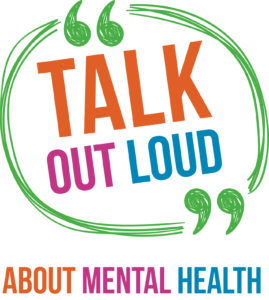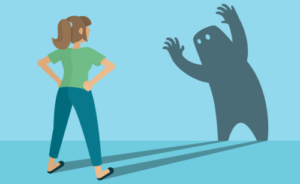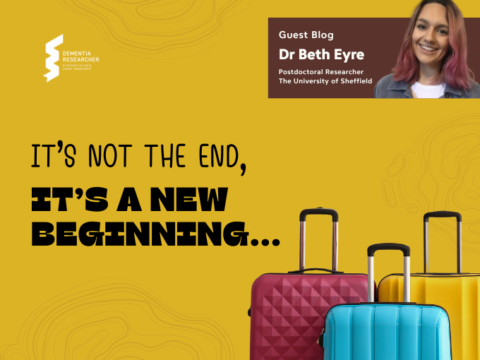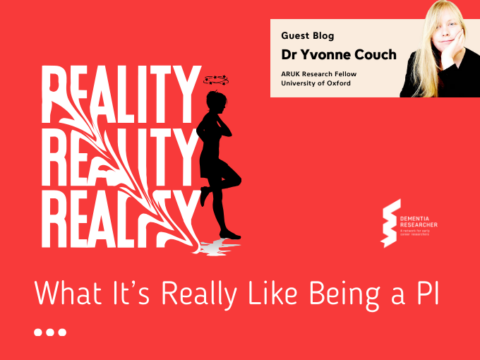 As I write this piece Spain has surpassed the figure of 6,800 deaths by coronavirus (that number may have increased by now). I was here, at home, when the lockdown was announced, so I have been in confinement in Asturias for 16 days now. A war hospital has been set up in the parking of my town’s main hospital, to prevent we run out of ICU beds if we need them. My own family is made of 5 more members. Four of them qualifying as vulnerable or highly vulnerable. Life under a constant feeling of threat is something completely new to me, a child brought up in a privileged time and place. These are my learnings so far about how to carry on with life and work as a dementia researcher in these extraordinary circumstances.
As I write this piece Spain has surpassed the figure of 6,800 deaths by coronavirus (that number may have increased by now). I was here, at home, when the lockdown was announced, so I have been in confinement in Asturias for 16 days now. A war hospital has been set up in the parking of my town’s main hospital, to prevent we run out of ICU beds if we need them. My own family is made of 5 more members. Four of them qualifying as vulnerable or highly vulnerable. Life under a constant feeling of threat is something completely new to me, a child brought up in a privileged time and place. These are my learnings so far about how to carry on with life and work as a dementia researcher in these extraordinary circumstances.
Top priority: home and mental health
I learned that everything starts and ends with a safe nest where your mind can rest. So, stop and think: what is your master plan for the supply of food, medicines, deal with cancelled (or needed) medical appointments, and provision of support for those family members that may need it? You will also have to allow more time to all your routines in general. For instance, shopping, even if it’s online shopping, will take more time because of all the safety measures you need to comply with (like sanitising grocery items and make sure you clean up everything you touched since you arrived home). Once home and family are sorted, you have gained a considerable amount of ground.
Dealing with the emotional shock comes next. In my case, it is not only the number of deaths rising what emotionally destabilises me. It is the stories behind and around: “I have lost both my mum and my dad in this week”, “we have two of our ICU nurses on ventilators now”. Tears fill my eyes. But I know that when we, humans, feel extremely vulnerable, we need to put into place extreme measures to get grounded and regain confidence in ourselves and our capacity to survive. My style is proactive, I am rather a “doer”, so I need “to do” to get myself out of the paranoia of fear. This is what works for me:
- Expose myself to sunshine as much as I can (I have a terrace from where I work, have lunch, read) because I know its effect on serotonin and melatonin and therefore my mental strength,
- I exercise and practice yoga by Whereby.com with my family every day since the lock-down started. Practising with others makes more likely that I will actually comply with my own practice, and also makes me feel that I am doing something to support my family during the confinement. I also have a stationary bike in my terrace and a jump rope (and I use them),
- I pay attention to opportunities to be useful: for instance, I volunteer my clinical skills to remotely support people living with dementia through the lock-down. Is there anything you can do to help? There are lots of volunteering opportunities announced in the internet. You can do your bit to help with the covid crisis.
Those strategies do not make my pain disappear, but they make it bearable. Focusing on nurturing and growing life and positivism amid death and desperation, is the best way to keep me going.
 Second priority: get some dementia research done!
Second priority: get some dementia research done!
You may be worried about productivity. Remember something. We researchers are usually OVER performing. We work long hours. We go through emails, papers and grant writing on weekends. We juggle a thousand things. We live on the edge. It is OK if we turn the speed down and perform as an ordinary human being for a few weeks.
Fear is distracting. When you are very stressed you struggle to focus and therefore you are less efficient, which only contributes to increase your stress levels. This is my strategy to cut off that vicious circle: I give myself 1 hour and 1 goal to attain in that hour. I start the stopwatch and I do not let anything to get between me and my goal during that hour. I do not check mails, I do not pick up phone calls, I do not get up from the chair (literally). When the hour has passed, I am allowed to take a short break. Then I get back and restart the stopwatch for another hour. And so, until I get 5 solid hours of work done. The rest of the time is for meetings, emails and admin stuff.
Routine. Routine. Routine. In order to remain efficient, it is essential for me to remain disciplined: work from home needs its ritual. I get dressed and prepared in the morning (pyjamas do not count as being dressed) and I start working very early (because those quiet early hours are priceless) and try to get most of the hard work done before midday. Why? Because stress is higher than usual these days, there is more cortisol in my blood stream, and I noticed I get tired (and irritable) quicker. Cracking on the most demanding tasks early in the morning, when I am more energised, ensures that I get the most relevant stuff done. And this gives me some sense of control.
We are going through unimaginable circumstances. But we scientists are a resilient, capable and strong community. Not only we can, and we will go through these difficult times, but we may also play a leading role in supporting others to do the same.
Message from Dementia Researcher
We hope you are safe and well during these difficult times, and looking after your health and wellbeing. To help yourself stay well while you’re at home:
- stay in touch with family and friends over the phone or on social media
- try to keep yourself busy – you could try activities like cooking, reading, online learning and watching films
- do light exercise at home, or outside once a day
For more advice, see:
- Every Mind Matters: 10 tips to help if you are worried about coronavirus
- Every Mind Matters: how to look after your mental wellbeing while staying at home
- strength and flex exercises you can do at home
We will be running a number of webinars over the coming weeks, if you would like to keep active, and get involved or just chat, drop us a line to dementiaresearcher@nihr.ac.uk
If you need medical help for any reason, do not go to places like a GP surgery, pharmacy or hospital.
If you have symptoms of coronavirus (a high temperature or a new, continuous cough), use the 111 coronavirus service.
If you need help, and support or would like to talk with someone, here are a few numbers (for UK) that may be of some use:
The Samaritans offer emotional support 24 hours a day – in full confidence.
- Call 116 123 – it’s FREE
Or email jo@samaritans.org.uk
For support in a crisis, Text Shout to 85258.
If you’re experiencing a personal crisis, are unable to cope and need support.
Shout can help with urgent issues such as:
- Suicidal thoughts
- Abuse or assault
- Self-harm
- Bullying
- Relationship challenges
Mind offer an information line to answer questions about:
- types of mental health problem
- where to get help
- drug and alternative treatments
- advocacy.
Call the Mind infoline on 0300 123 3393 (UK landline calls are charged at local rates, and charges from mobile phones will vary considerably). Or email info@mind.org.uk.
Author
Dr Aida Suarez-Gonzalez is a Clinical Neuropsychologist and Senior Research Fellow at the Dementia Research Centre, UCL Institute of Neurology at Queen Square. With many years clinical experience working in Spain, Aida now investigating non-pharmacological interventions, services and assistive technologies to support people living well with dementia.

 Print This Post
Print This Post




